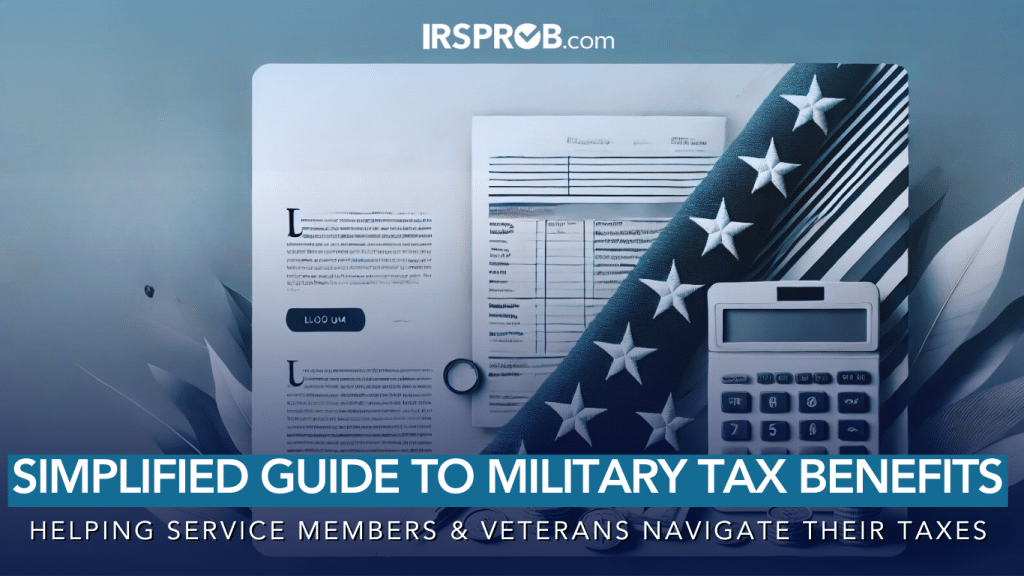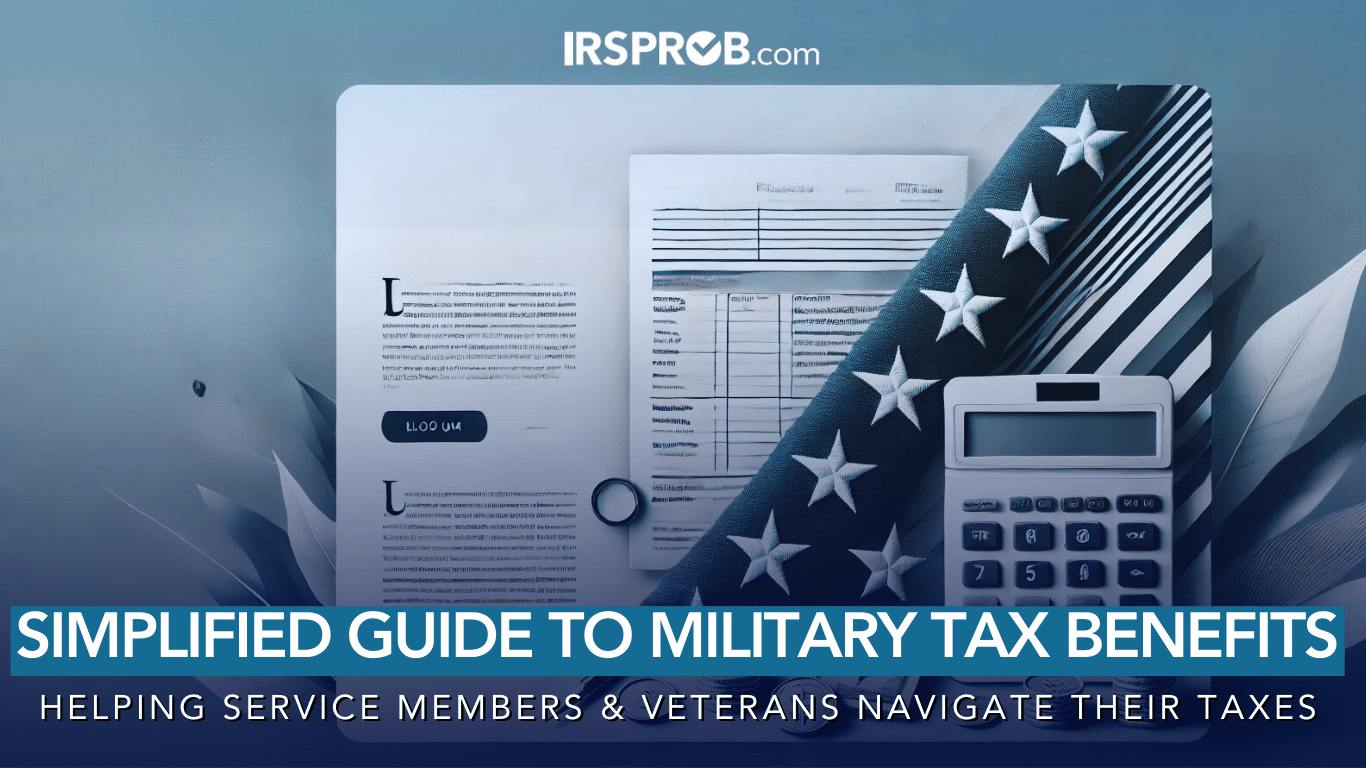
Members of the U.S. Armed Forces and veterans often have unique tax situations and needs. Recognizing the sacrifices they make, the IRS provides specific tax benefits to ease their tax burden and make filing simpler. From tax-free combat pay to special filing extensions, these benefits aim to support military personnel, veterans, and their families with both basic and complex tax issues.
Key Tax Benefits for Active-Duty Service Members
Service members receive several unique tax benefits that can significantly impact their tax obligations. Here are some of the most valuable benefits available:
1. Combat Pay Exclusion
- Tax-Free Income: Military members serving in designated combat zones or hazardous duty areas may have some or all of their combat pay excluded from taxable income. This exclusion can provide substantial tax savings.
- Support Operations: Members supporting combat operations outside a combat zone may also qualify for this exclusion, helping ease the financial impact during deployment.
2. Combat Zone Tax Deadline Extensions
- Additional Filing Time: Service members serving in combat zones or on specific contingency operations outside the U.S. are eligible for automatic deadline extensions for filing and paying their taxes.
- Extended Flexibility: This benefit can relieve stress, allowing deployed personnel to focus on their mission without worrying about tax deadlines.
3. Armed Forces Dependency Allotments
- Tax-Free Dependent Care: Government contributions toward dependency allotments are not considered taxable income for service members. This exclusion means members who receive dependent care allotments can benefit without impacting their taxable income, potentially reducing their overall tax liability.
4. Earned Income Tax Credit (EITC)
- Increased Refund Potential: The EITC for low to moderate-income military members can be worth up to $7,830 in 2024. Service members who receive nontaxable combat pay can still choose to count it as earned income to maximize their EITC eligibility, which may lead to a larger refund.
- Expanded Benefits: This option can be a crucial financial boost, especially for junior enlisted personnel or families with multiple dependents.
5. Moving Expenses Deduction
- Tax Relief on Relocation: Active-duty members relocating due to a permanent change of station may deduct unreimbursed moving expenses, including packing, transportation, and storage costs.
- Exempt Allowances: Allowances provided by the government for permanent change-of-station moves are not taxable, which further reduces the burden of relocation costs. This exemption ensures that moves required by military service don’t increase a member’s tax liability.
Filing Support for Military Members and Veterans
Military members and veterans have access to a range of resources to simplify the tax filing process. Here are key options available:
1. MilTax by the Department of Defense
- Free Tax Assistance: MilTax is a no-cost suite of tax preparation and filing services offered exclusively to members of the military, qualifying veterans, and their families. It covers a wide array of tax situations, including deployments, combat pay, and multiple state filings.
- Confidential and Accessible: Available online, MilTax is tailored specifically for military members and is easy to access. This service provides comprehensive support for those with complex tax needs due to military service.
2. Volunteer Income Tax Assistance (VITA) on Military Installations
- In-Person Support: Many military bases provide free tax preparation through the Volunteer Income Tax Assistance (VITA) program. These services are available at legal offices and provide personalized help for active-duty members and their families.
- Qualified Assistance: VITA volunteers are IRS-trained and knowledgeable about military-specific tax benefits, ensuring service members receive accurate guidance tailored to their needs.
Additional Tax Considerations for Military Families
1. Retirement Benefits and Veterans’ Disability Payments
- Retirement pay and veterans’ disability payments may have unique tax rules. Disability benefits received from the Department of Veterans Affairs (VA) are generally not taxable, which can significantly reduce taxable income for disabled veterans.
2. National Guard and Reservist Pay
- Members of the National Guard and Reserves called to active duty for more than 179 days can exclude certain expenses related to travel away from home, which is a significant benefit for those frequently deployed for training or missions.
3. State Tax Benefits for Military Members
- Certain states offer tax exemptions or deductions for military members. For instance, some states exempt military retirement pay, while others provide state-specific credits for active-duty members stationed out of state. Checking with your state’s Department of Revenue can reveal additional benefits for military personnel.
Final Thoughts: Leveraging Military Tax Benefits
Taking advantage of these tax benefits is essential for service members and veterans, as these provisions are designed to reduce tax burdens and make filing easier. Whether it’s utilizing MilTax, claiming the EITC, or understanding the nuances of combat pay, there are many opportunities for military families to maximize their refunds and reduce taxable income.







